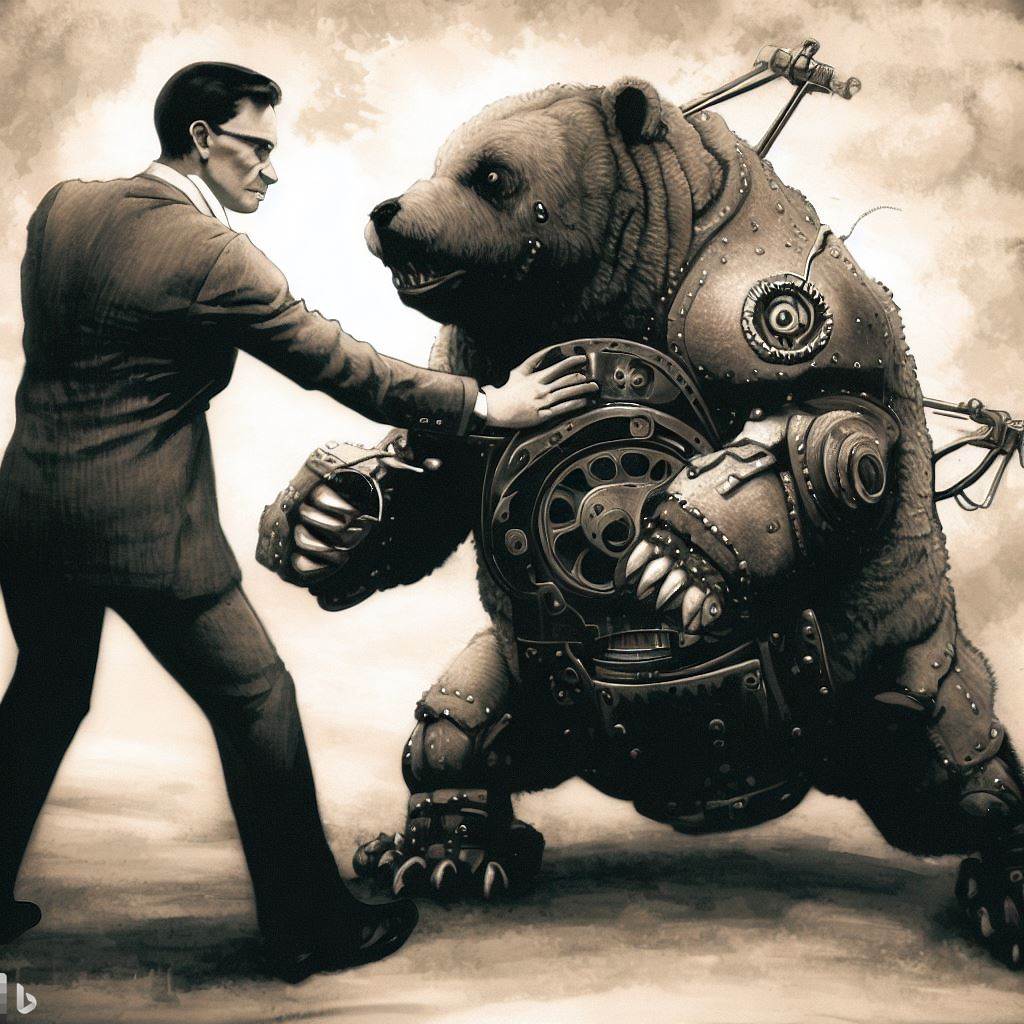Tragedy is death, Comedy is Marriage
Lord Byron once remarked,
“All tragedies are finished by a death, All comedies are ended by a marriage.”
This adage has resonated with many throughout history and has found its way into various literary works. In my own journey through literature, I first encountered this quote during our study of Shakespeare back in high school. Little did I know that this saying would take on a new, intriguing meaning when I later explored the CS Lewis novel “That Hideous Strength” and its captivating ending scene.
“Oh, come quick, someone. Come quick!” she gasped. “There’s a bear in the kitchen.”
“A bear, Ivy?” said the Director. “But, of course—”
All this time the strange bear had been standing perfectly still with its eyes fixed on the Director. Now he laid his hand on its flat head. Urendi Maleldil,” he said. “You are a good bear. Go to your mate —but here he is,” for at that moment the door which was already a little ajar was pushed further open to admit the inquiring and slightly anxious face of Mr. Bultitude.
“Take her, Bultitude. But not in the house. Jane, open the other window, the French window. It is like a night in July.”The window swung open and the two bears went blundering out into the warmth and the wetness. Everyone noticed how light it had become.”
CS Lewis, That Hideous Strength
Animal Symbolism and the She-Bear
In “That Hideous Strength,” C.S. Lewis masterfully weaves a tale that explores themes of nature, creation, and the relationship between humanity and the animal kingdom. The ending scene, which involves a she-bear, holds a deeper significance beyond its immediate context. It appears to be a nod to the idea of “Be Fruitful and Multiply,” a biblical reference emphasizing the importance of reproduction and growth.
In this scene, we witness the encounter between the characters and a strange bear. The she-bear stands still, its eyes fixed on the Director, as if acknowledging some unspoken understanding between them. The Director then lays his hand on the bear’s head and says, “Urendi Maleldil.” In the Space Trilogy, “Maleldil” is the Christian God, described in Perelandra as having been incarnated as Jesus.
Adam and the Naming of the Animals
The reference to Adam and the naming of the animals in creation adds another layer of meaning to this scene. In the biblical account, Adam was given the task of naming the animals, and in doing so, he brought order and meaning to the world around him. Similarly, the new man in “That Hideous Strength” names the bear “good,” reflecting the power of language and naming in shaping the perception of the world.
Rushdoony connects name and covenant together, he writes:
“The idea of a covenant implies first and foremost the notion of imposition, of liability, and of obligation. Thus the doctrine of the covenant which is basic to scripture requires us to believe that man being made a covenant partner by God is placed under obligation. Now, to go a little further the idea of a covenant is very closer related to naming a man, to naming a people, a group, a nation, an institution. Naming anything with whom a covenant is made. God when He makes a covenant names the one with whom he makes that covenant. Now we know when Adam was created and given the task of naming the animals the purpose was to understand them, to classify them, to see the entire order of the animal world in terms of God’s creative purpose. So His was a subordinate task of naming, a task required of him by God and his naming was to be a classification, a scientific task so that the order God created would be named, would be understood, would be classified by Adam in his naming. Naming is an aspect of making a covenant. A covenant calls for a new name, a new blood, a new identity, a new relationship and a new life.”
RJ Rushdoony, Lectures on Systematic Theology, The Covenant And The Name
The Symbolism of Going Back to Nature:
The decision to let the bears go back to the wild, embracing their natural habitat, carries profound symbolism. It symbolizes a return to nature, a rejection of the artificial and oppressive structures imposed by the new NICE organization and their modern anti-God society. By allowing the bears to roam freely, the characters in the novel are acknowledging the importance of preserving the natural world and embracing the harmony in a new Creation or renewing of the Good Garden of Eden.
The AI-Generated Image used for this post was generated using BING.

Leave a ReplyCancel reply